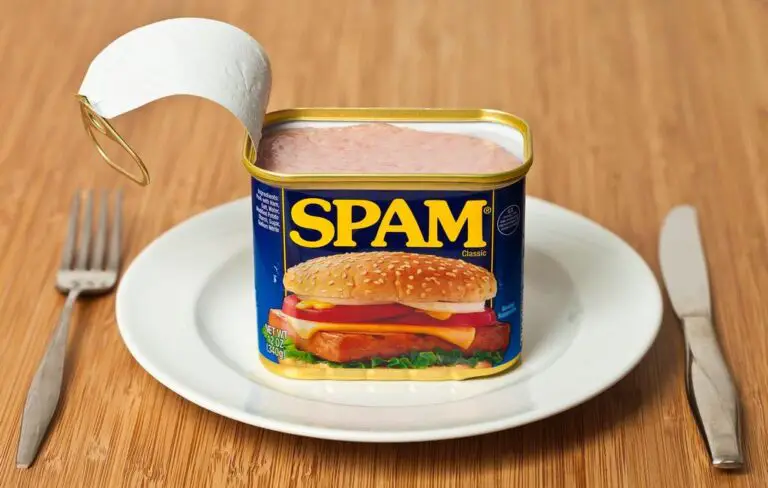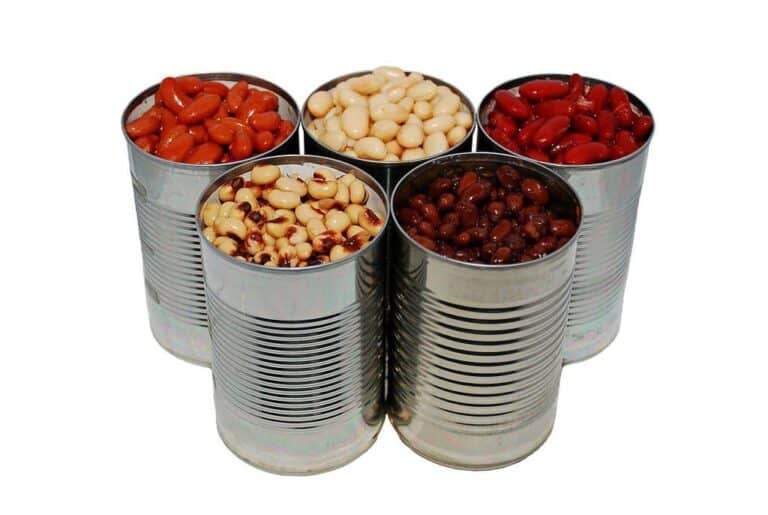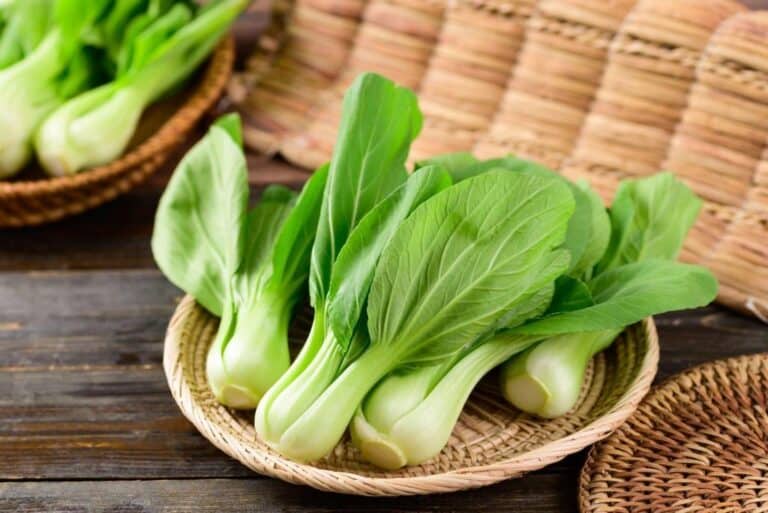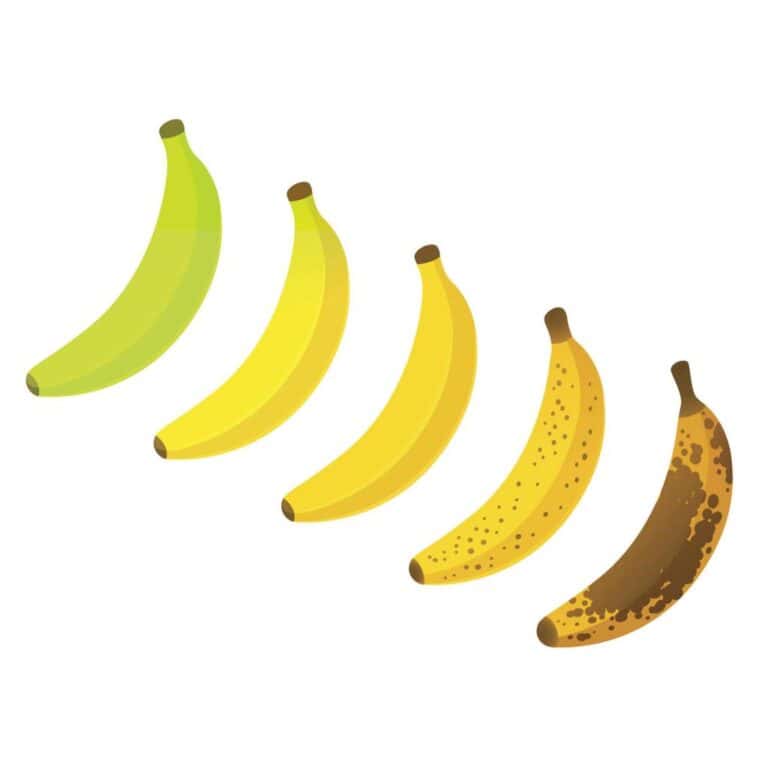Do Dried Fruits Need To Be Refrigerated? Best Way To Store Them
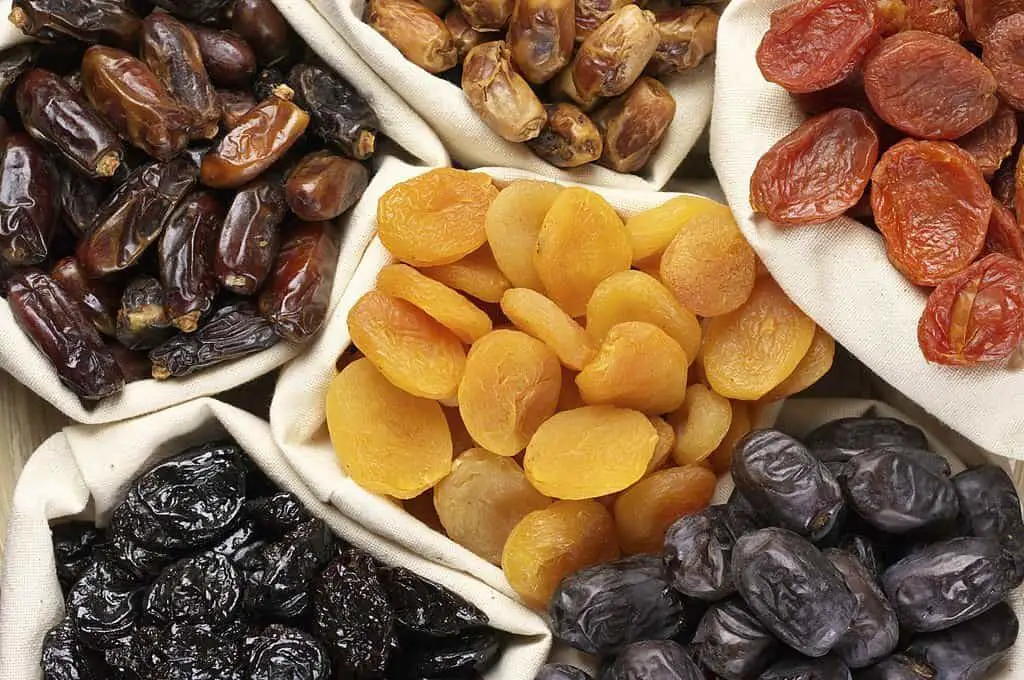
Dried fruit has been used for a long time as a year-round source of vitamins and minerals.
There is evidence that people in Persia and Arab countries enjoyed dried apricots over a thousand years ago. In North America in the 19th century, dried cherries and cranberries were added to pemmican to keep people going on long trips.
Dried fruit is certainly a favorite all over the world, whether it’s eaten alone or baked into bread, added to trail mix, or just enjoyed that way.
Dried fruits are a healthy and delicious snack, but you may be wondering if they need to be refrigerated. The answer is no. Dried fruits do not need to be refrigerated. Dried fruits can be stored at room temperature in a cool, dry place for up to a year.
However, if you live in a warm climate or if your dried fruit is exposed to heat or sunlight, it will spoil faster. In these cases, it’s best to store your dried fruit in the fridge.
What Are Dried Fruits?
Dried fruits are fruits that have been dried, either naturally (sun drying) or artificially (dehydrator).
The drying process removes the water content from the fruit, leaving behind a concentrated source of nutrients. Drying fruit concentrates its sugars and flavors, making it a sweet and nutritious snack.
Dried fruits are a healthy and convenient snack option, and can be added to a variety of recipes.
Why Are Dried Fruits So Popular?
Dried fruits are popular because they are easy to store, transport, and eat. Consuming dried fruits is a great way to bring a touch of sweetness into your day.
In the United States and other nations, there is a significant link between low fruit intake and diet-related illness and disability. So one answer may be to encourage people to consume more dried fruit.
While all dried fruits offer some nutritional benefits, some types are especially high in certain vitamins and minerals. For example, dried apricots are an excellent source of potassium, while raisins are a good source of iron. Dried fruits also tend to be high in fiber and antioxidants.
Raisins, dates, prunes (which are dried plums), figs, apricots, and peaches are some of the most popular dried fruits. There are also dried fruits like mango, pineapple, and berries, but they usually have sugar added to them.
Do Dried Fruits Lose Their Nutrients?
Dried fruits are a healthy and delicious snack option that can be consumed for a long time after being dried. But you may be wondering if they lose their nutrients when they’re dried.
The answer is yes and no.
Some nutrients, like vitamins and minerals, are not affected by the drying process. However, other nutrients, like fiber, are reduced when fruits are dried.
Some minerals, like iron and potassium, including vitamin A and vitamin B, are more abundant in dried apricots than in fresh apricots. However, compared to their fresh counterparts, raisins, prunes, and dried apricots do not provide a higher supply of vitamin C. This is due to the fact that vitamin C deteriorates with time and when it is heated.
That being said, dried fruits are still a good source of nutrients. They’re packed with vitamins and minerals, and they’re a good source of fiber. Just be sure to read the labels carefully so you know how much of each nutrient you’re getting.
Does Dried Fruits Need to Be Refrigerated?
Dried fruits do not need to be refrigerated and can actually be stored at room temperature. However, there are a few things to keep in mind when storing dried fruits.
First, dried fruits should be stored in an airtight container. They’ll stay fresh and won’t dry out as a result of this. Second, if you live in a humid climate, it’s a good idea to store your dried fruits in the refrigerator. This will help to keep them from getting moldy or spoiling.
Overall, there is no need to refrigerate your dried fruits. Just make sure to store them properly and they will stay fresh for months!
How Long Does Dried Fruits Last (Shelf Life of Dried Fruits)
When it comes to dried fruit, there are a lot of variables that can affect shelf life. For example, the type of fruit, how it was dried, and storage conditions can all play a role in how long the fruit will last.
Dried fruits have a much longer shelf life than fresh fruit because the moisture has been removed. This makes them less susceptible to spoilage and more edible for a longer period of time.
The type of fruit can play a big role in shelf life. For instance, apricots tend to have a shorter shelf life than raisins. This is because apricots are more delicate and susceptible to moisture damage. On the other hand, raisins are more resistant to moisture damage and can last longer as a result.
How the fruit is dried can also affect its shelf life. If the fruit was dried using sulfur dioxide, it will have a shorter shelf life than if it was air-dried.
Fresh fruit typically only has a shelf life of a few days to a week, while dried fruit can last for months or even up to a year.
When stored properly, the shelf life of dried fruits such as craisinis (dried cranberries), raisins (dried grapes), dried apricots (really apricots!) and many other dried fruits past their best-by date is roughly one year.
You can store dried fruit in a cool, dark place like a pantry or cupboard, or even in the refrigerator or freezer if you want it to last even longer. Just make sure it’s in an airtight container so that no moisture can get in and spoil the fruit.
Dried Fruits and Expiration: Do Dried Fruits Ever Expire?
When it comes to dried fruit, the answer is not as straightforward as you might think. While most fruits will start to spoil soon after they’re picked, drying them out can help preserve them for much longer. In fact, if stored properly, dried fruit can last for months or even years without going bad.
The key to making sure your dried fruit lasts as long as possible is in storage. Once the fruit is dried and packaged, it’s important to keep it in a cool, dark place like a pantry or refrigerator. Properly stored dried fruit can last anywhere from six months to a year.
If you’re not sure how long your dried fruit has been sitting around, there’s no need to worry. Dried fruit is still safe to eat even if it’s past its expiration date. However, it might not taste as fresh as it once did.
How to Tell if Dried Fruits Are Bad, Rotten, or Spoiled?
Dried fruits can go bad, rotten, or spoiled if they are not stored properly. Here are some tips on how to tell if dried fruits are bad, rotten, or spoiled:
- Check the packaging for signs of damage. If the packaging is damaged, it may mean that the dried fruits inside are damaged as well.
- Inspect the dried fruits for mold or other signs of spoilage. If you see any mold, discard the fruit immediately.
- Smell the fruit. If it smells off or rancid, it is probably bad and should be thrown out.
- Taste a small piece of the fruit. If it tastes bad, spit it out and throw away the rest of the fruit.
If you are not sure if the dried fruit is bad, rotten, or spoiled, throw it away. It is better to be safe than sorry!
Conclusions
Dried fruits are a type of fruit that has been dried, either through sun drying or through the use of a dehydrator. Dried fruits are popular because they are easy to store, transport, and eat. They are also a good source of fiber and antioxidants.
Dried fruits do not need to be refrigerated and can actually be stored at room temperature. However, there are a few things to keep in mind when storing dried fruits.
If you live in a humid climate, it’s best way to store your dried fruits in the refrigerator. This will help to keep them from getting moldy or spoiling.
What kind of dried fruit is the healthiest?
Apricots are the dried fruit with the highest concentration of beta-carotene, an antioxidant related to better brain health and a decreased risk of type 2 diabetes.
What happens if you eat dried fruit that has mold on it?
It’s unlikely that eating moldy fruit will make you feel bad in any way. However, she does mention that there are a few signs to watch out for, including nausea, vomiting, gas, and diarrhea. These, according to her, may be symptoms of digestive trouble.
Are dried fruits safe against botulism?
Botulinum is very particular when it comes to the conditions it needs to thrive. True, it requires an anaerobic environment, but it cannot flourish in a pH range below roughly 4.6. The dried fruit is safe if its pH is less than this.

